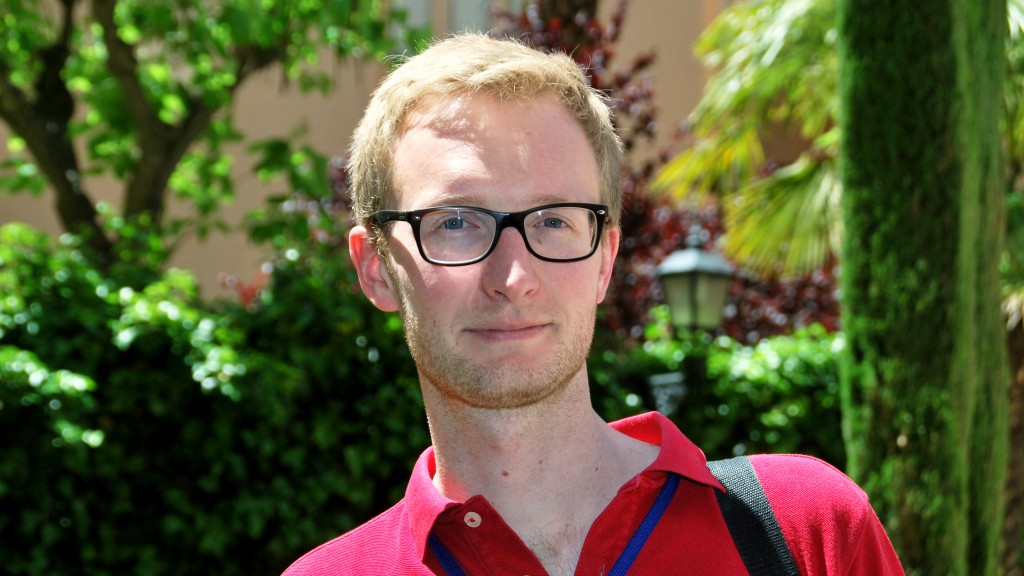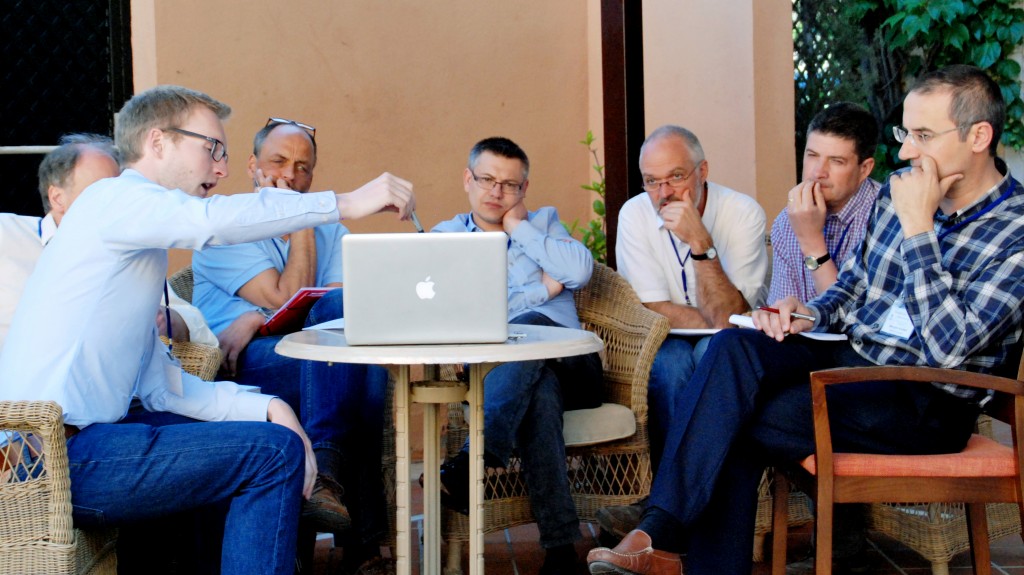Marco Horn, a young livestock scientist from Austria, did his Ph.D. as part of the SOLID project which gave him a unique opportunity to become part of an international network of more experienced livestock scientists.
By Ulla Skovsbøl
A number of young scientists have benefitted from being involved in research in organic and low input farming systems within the SOLID project. One of them is Marco Horn – a young livestock scientist from Austria who did his Ph.D. at the University of Natural Resources and Life Sciences in Austria as part of the SOLID project. At the annual SOLID meeting in Granada in May 2015, he agreed to give an interview about his SOLID experience:
Marco, why did you become involved with SOLID?
Marco Horn: I did my Masters at the Department of Sustainable Agricultural System. It was related to organic dairy farming and I was keen to get involved in research on genotype by environment interaction. So, I was happy when the Head of Department Werner Zollitsch asked me to be involved in SOLID.
So what was the topic of your Ph.D.?
Marco Horn: In my Ph.D. I compared different Alpine dairy cow types with regard to their suitability for low input dairy farm systems.
Why did you take an interest in low-input farming?
Marco Horn: There has been a focus on low input farming in Austria during recent years and at my Institute there were teachers giving lectures on that topic during my Masters study. It made me curious and I found it quite interesting, so I was happy to get an opportunity to contribute to building up new knowledge in that field.
How was it to be a part of this extended network of scientists?
Marco Horn: I enjoyed it a lot because scientific work depends on sharing knowledge and discussing it, and a project like SOLID is the perfect platform for doing it. The experiments we did in Austria were also conducted in a similar way in Ireland and Finland and we could discuss our findings in our transnational group. However, by also participating in the annual SOLID meetings you could get the feedback from all the other partners, some of whom are dealing with life cycle assessment, others with consumer interviews etc. and they can often contribute with valuable input from new perspectives. I enjoyed those discussions a lot.
How did that add value to your own research?
Marco Horn: As a researcher you have your own hypothesizes, opinions and ideas, but they have to be discussed and challenged. It´s very valuable when somebody else is questioning your conclusions from a totally different angle. It qualifies your research a lot.
So what are you doing now?
Marco Horn: I finished my Ph.D. in December 2014 and now I work as a dairy consultant for the Austrian Chamber of Agriculture.
How can you use the knowledge you gained from SOLID and your Ph.D.?
Marco Horn: Now, it’s really about using everything we learned at the livestock science institute, but in particular, in the SOLID project the focus was not only on a very specific aspect of dairy farming but on livestock systems as a whole. In the same way, when I as a consultant go to advise a farmer, I have to look at the entire farm and take multiple factors into account. Having been part of SOLID is very useful in that respect, because we have been looking at farm systems and analyzing complex entities. That experience helps me a lot.
Can you use your knowledge on low-input farming as an advisor?
Marco Horn: Some of the farmers are interested in low-input farming and there is an increasing interest in it. But my current job is not to transform all the Austrians farms to low-input farming. It’s an option they have and I can give valuable advice on that. However, I´m not supposed to be a missionary travelling around the countryside to persuade the farmers to apply low-input strategies. As an advisor I just provide options. The farmers have to make the decisions themselves.



